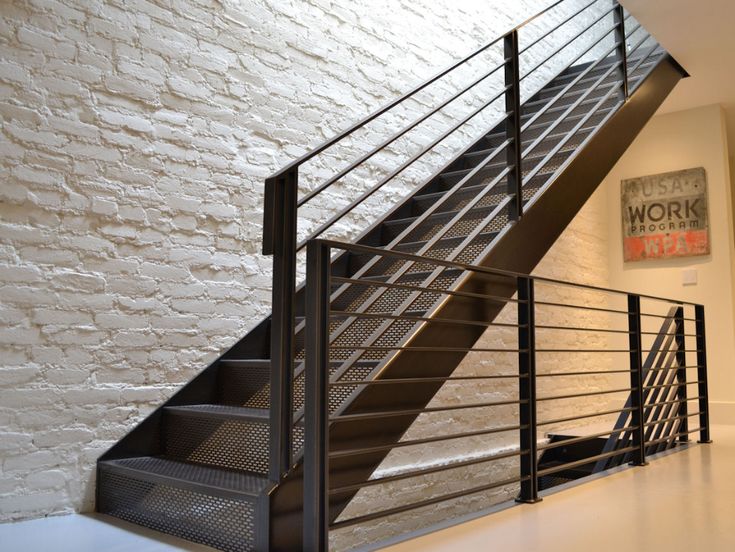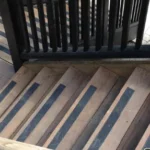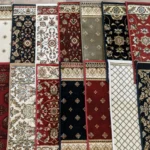Metal stair treads for industrial applications are a practical solution that combines safety, durability, and structural integrity in environments where foot traffic, heavy machinery, and demanding conditions are part of daily operations. From warehouses and factories to oil rigs and modern commercial spaces, the use of these stair components plays a critical role in maintaining secure movement and long-lasting functionality. They are engineered to withstand significant weight loads, resist environmental wear, and offer slip-resistant surfaces that support safe navigation under challenging conditions.
Why Metal Stair Treads Are Essential in Industrial Spaces
Industrial facilities demand flooring and stair solutions that can endure far more than everyday residential use. Stairs in these settings are subjected to constant stress from high traffic, chemical exposure, temperature extremes, and heavy equipment. This makes traditional wooden or vinyl materials unsuitable.
Metal stair treads excel because they:
- Deliver superior strength and load-bearing capacity.
- Resist corrosion when treated or made from stainless steel stair treads.
- Offer various anti-slip options including diamond plate, perforated, or grated surfaces.
- Have a long service life with minimal maintenance needs.
These benefits make metal stair treads one of the most sensible investments for companies aiming to improve both efficiency and worker protection.
Types of Metal Stair Treads
When selecting the right stair tread for an industrial project, understanding the material and design options is essential. Stair treads are not one-size-fits-all; their construction depends on the application’s environment, safety codes, and expected usage.
Steel Stair Treads
Industrial stair treads steel are popular because of their high strength, affordability, and versatility. They are often galvanized to resist rust, making them perfect for outdoor or moisture-prone areas such as water treatment plants and shipyards. Their tough composition allows them to endure impacts and abrasions without easily deforming.
Stainless Steel Stair Treads
For industries where hygiene and corrosion resistance are critical, stainless steel stair treads are the clear choice. Food processing facilities, laboratories, and pharmaceutical plants often rely on stainless steel because it withstands cleaning chemicals and maintains a polished appearance. Beyond hygiene, its natural resistance to rust ensures longevity in humid or wet settings.
Aluminum Variants
Although lighter than steel, aluminum stair treads are sturdy enough for many industrial situations. They provide an advantage in facilities requiring easy transport and installation of stair components because of their reduced weight. This can be beneficial on offshore platforms or construction sites where mobility plays a role in design.
Grated or Perforated Metal Treads
These treads are especially useful where drainage and slip-resistance are priorities. The grated design allows liquid, dust, or debris to pass through, keeping the tread surface clearer and safer for workers. This makes them ideal for chemical plants, breweries, or outdoor staircases exposed to heavy rain.
Safety Benefits of Industrial Stair Treads Steel
Stair safety is one of those elements that can be overlooked until an accident happens. Industrial environments present heightened risks due to oil, dust, water, or heavy traffic. Investing in industrial stair treads steel provides significant safety enhancements compared to lesser materials.
- Slip Resistance: Many metal stair treads feature textured surfaces such as diamond plate patterns or slip-resistant coatings. These surfaces reduce the likelihood of slips even under wet or oily conditions.
- High Load Support: Metal maintains shape under heavy weight, unlike wood or plastic which may bend or warp. This reliability ensures that staircases remain stable and safe over decades of use.
- Integration with Handrails: Industrial staircases often require guardrails and handrails. Metal treads easily integrate into these systems, guaranteeing consistent stability.
- Visibility Options: Some designs incorporate nosing with bright contrasting colors, further reducing stair-related accidents.
Design Flexibility and Customization
While safety and strength dominate industrial priorities, metal stair treads also provide flexibility in design. Each project can specify thickness, width, coating type, and attachment methods. For instance:
- Galvanized finishes extend outdoor lifespans significantly.
- Powder coating allows for customizable colors that match facility aesthetics.
- Bolt-on or weld-on options give businesses the ability to choose installation methods suited to their infrastructure.
This ability to tailor stair solutions means companies do not need to settle for generic sizes or finishes that might not suit their exact environment. You can also learn more about various stair tread designs and surface options through resources like stair treads.
Key Applications Across Industries
Metal stair treads support countless industries where safety and resilience cannot be compromised. Here are some of the most prominent sectors that depend on them:
Warehouses and Distribution Centers
Constant forklift traffic, heavy equipment movement, and frequent employee use place severe stress on staircases. Metal treads offer a long service life, reducing replacement and repair costs.
Oil and Gas Facilities
Harsh weather conditions, exposure to corrosive chemicals, and slippery environments all exist together in oil refineries and offshore rigs. Stainless steel stair treads are particularly important here due to their corrosion resistance.
Manufacturing Plants
Pulverized dust, heat, and machine vibration are typical in factories. Industrial stair treads steel options perform well in these demanding environments because they resist warping and maintain stability under stress.
Food Processing and Pharmaceuticals
Hygiene standards are top priority. Stainless steel stair treads are chosen because they withstand frequent chemical cleaning and prevent bacterial buildup, all while maintaining a visually clean appearance.
Commercial Settings
Even in shopping centers, hospitals, and office complexes, metal treads provide a durable modern look that requires little upkeep. Architects often choose perforated or diamond plate designs for staircases that balance function with sleek style.
Proper Installation Considerations
The benefits of metal stair treads will only reach their full potential when they are installed correctly. Poor installation can negate the durability or safety these components are meant to provide. Some important guidelines include:
- Secure Mounting: Treads must be fastened using proper bolts or welding methods suited to the environment and load requirements.
- Even Spacing: Misalignment can create unsafe gaps that increase the risk of trips or falls.
- Use of Nosing: Adding nosing strips increases grip and visibility, crucial in areas where workers carry loads that may obscure their vision.
- Compliance with OSHA Standards: Stairways in industrial facilities must align with safety guidelines to avoid penalties and ensure worker security.
Maintenance Practices to Extend Lifespan
Even the strongest materials need care to achieve their full lifespan. For metal stair treads, maintenance requirements are relatively simple compared to wood or concrete. Following a consistent care schedule prevents corrosion and structural issues.
- Regular Cleaning: Removing oil, dust, and grime keeps surfaces slip-resistant. Stainless steel stair treads can be cleaned with neutral detergents without fear of damage.
- Inspection for Wear: Checking bolts, welds, and surface grip helps identify early deterioration.
- Rust Treatment: Galvanized or coated steel may eventually show small signs of rust. Promptly addressing these areas extends service life.
- Replacing Worn Anti-Slip Coatings: Non-slip finishes eventually wear down and require reapplication to maintain effectiveness.
Comparing Metal Stair Treads to Other Materials
While metal outperforms many alternatives, it is worth comparing common choices to see why industries value it so highly.
- Wood: Inexpensive initially but prone to rot, warping, and insect damage. Not recommended for heavy industrial loads.
- Rubber: Provides temporary slip resistance but lacks the structural integrity required for heavy-duty use. Rubber is better suited for residential or office stairs, for instance those using outdoor rubber stair treads for weather safety.
- Concrete: Very durable but prone to cracking over time and often requires significant repair. Concrete also lacks flexibility in terms of design customization compared to metal.
Balancing Functionality with Design
While industrial spaces often prioritize functionality, many architects and business owners are realizing that appearance also matters. Stainless steel stair treads offer a polished, modern look, while powder-coated steel can introduce color to otherwise drab workspaces. Implementing visually appealing yet safe staircases improves workplace culture and leaves a positive impression on clients or visitors.
Choosing the Right Metal Stair Tread
Selecting the correct product comes down to assessing your space. Important considerations include:
- Load Requirements: Understand how much weight your staircases regularly bear. Industrial stair treads steel are the best choice for high loads.
- Environmental Conditions: If humidity or chemical cleaning is frequent, stainless steel stair treads offer superior resistance.
- Safety Needs: High-traffic areas benefit from aggressive slip-resistant textures like grated surfaces.
- Maintenance Resources: Stainless steel requires less repainting and touch-ups compared to galvanized steel, which may occasionally need treatments.
Conclusion
Metal stair treads are indispensable for industrial applications because they combine durability, structural strength, and safety features that other materials cannot match. From industrial stair treads steel suited for warehouses and factories to stainless steel stair treads found in hygienic or moisture-prone environments, they ensure dependable performance year after year. Whether used in high-volume commercial spaces or specialized facilities, these components provide peace of mind while supporting productivity and worker protection. By choosing the proper design, maintaining it regularly, and matching the tread type to your industry needs, metal stair treads guarantee both safety and longevity for critical structures.



